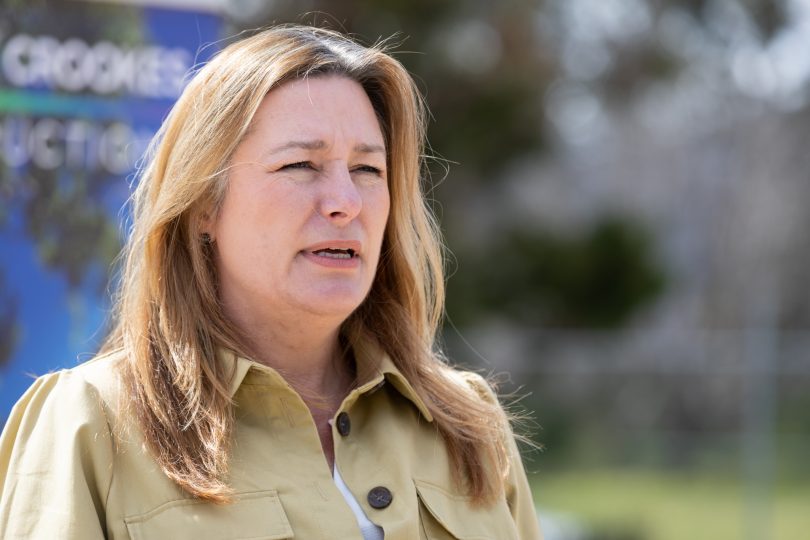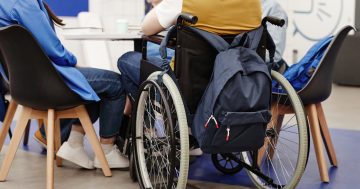
Education Minister Yvette Berry said the government will be working on inclusive education for students with disabilities. Photo: Michelle Kroll.
The ACT school year has started without any updates to the Education Directorate’s suspension policy in the wake of an ACAT ruling before Christmas that set aside a principal’s decision to suspend a Year 2 child with disabilities.
A spokesperson for Education Minister Yvette Berry said the Directorate recognised the important issues raised by the decision and was taking the necessary time to consider them.
The ACT Civil and Administrative Appeals Tribunal found the principal could have taken alternative action and had not met all the criteria for suspending the boy, including not consulting with the parents first.
ACAT did not believe that the boy was “persistently and wilfully non-compliant” or was a threat to the good order of the school.
However, the principal believed the situation was urgent and that the priority was safety, acting after a string of violent incidents involving the boy.
Ms Berry is believed to have seen the decision, but her spokesperson did not say whether she had come to any conclusions herself about it, or if she had been in touch with the Directorate about it and possible adjustments to the policy.
The spokesperson said the government would be working with students with disabilities and their families to take steps towards an education system that includes people with disabilities in ways that suits them.
”The ACT Government’s Future of Education Strategy includes as a key principle the goal of an inclusive education system,” the spokesperson said. “The government recognises that pursuing this goal requires cultural and systematic change that will take time.”
According to Directorate data, suspensions spiked during 2019 ahead of the Suspension, Exclusion and Transfer of Students in ACT Public Schools Policy being updated late in the year.
It shows 572 primary school and 817 high school students were suspended in 2019, the highest numbers in four years. However, the Directorate says the figures are not directly comparable to the previous year due to the implementation of a new school administration system.
Nonetheless, the data shows that suspension rates increased from 1.5 per cent in 2016 to 2.2 per cent in primary schools in 2019, and from 5.2 per cent to 7 per cent in high schools.
In 2016, 343 primary school students and 535 high school students were suspended. A total of 1,460 and 2,106 days respectively were lost to suspension in 2016, compared to 2,349 and 3,477 in 2019.
The number of incidents also climbed over the four years, from 819 and 1,111 in 2016 for primary and high school students, to 1,426 and 1,611 in 2019, which could be a result of increased reporting.
The coronavirus disruption is expected to skew the 2020 figures lower due to fewer days spent at school.
Asked whether having more students with disabilities in schools was boosting the number of suspensions, the Minister’s spokesperson said all jurisdictions found a higher representation of students with a disability in suspension data and the ACT was no different.
”This is because temporarily withdrawing a student from school activities and school grounds assists the school to ensure that appropriate measures are in place to meet a student’s needs and keep our staff and students safe,” the spokesperson said.
Asked whether schools needed more resources to better integrate students with a disability, the spokesperson said there had been a big increase in teachers choosing professional learning about inclusive education in recent years, which means that the capability of the ACT teaching workforce is strengthening every year.
”Teachers are skilled in meeting the needs of their students, including students with a disability,” the spokesperson said, noting that they are required to complete 20 hours of professional learning each year to maintain their registration.
The spokesperson said schools were funded to meet the needs of their students, including an extra loading for students with a disability, depending on the level of adjustment that each student needs.





















